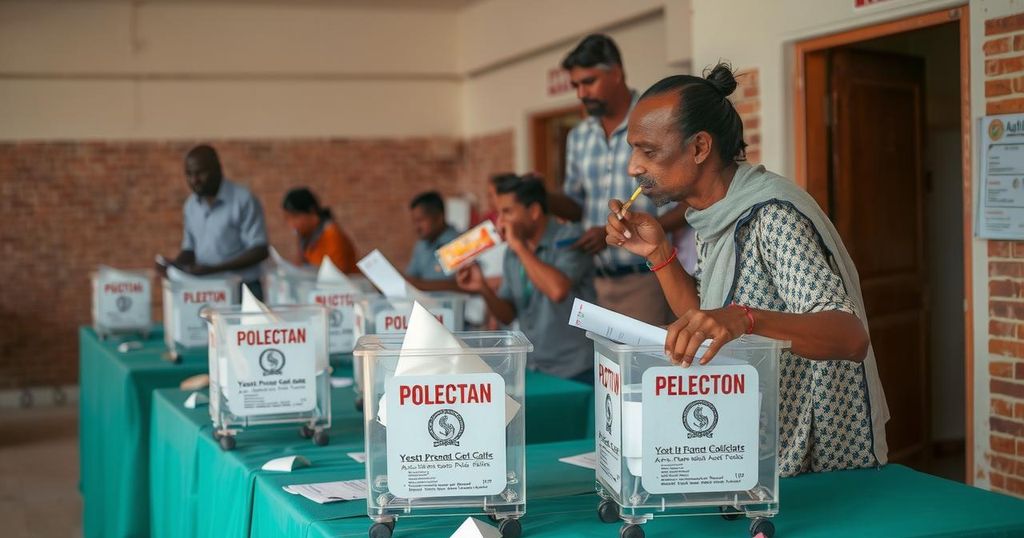Chad’s First Parliamentary Election in Over a Decade Faces Boycott and Controversy

Voting is in progress for Chad’s first parliamentary election in 13 years amidst a boycott by opposition parties who declare the results predetermined. The government frames this election as crucial in ending military rule while reports indicate low turnout, especially in the capital. The electoral process is under scrutiny for allegations of fraud and ongoing regional violence.
Voting commenced in Chad for the first parliamentary election in 13 years, a crucial step towards ending military rule according to the government. Voters are tasked with selecting members for a new parliament, provincial assemblies, and local councils in one of the world’s poorest countries. However, the opposition has called for a boycott, which they argue renders the elections predetermined and unfair. As polling opened in the capital N’Djamena, low turnout was reported, with officials attributing this to “cold weather.”
The opposition parties state that the election outcomes were predetermined, thus urging Chad’s eight million eligible voters to abstain. This boycott potentially paves the way for candidates aligned with President Mahamat Idriss Deby Itno, who has faced accusations of election fraud since his rise to power via military intervention in 2021. In a bid to promote participation, Deby encouraged his compatriots to vote on what he termed a “historic day.”
Despite the opposition’s claims, Chad’s electoral agency reported record turnout among military personnel and nomadic voters, emphasizing the significant local implications of these elections. The nomads expressed hopes for improved living conditions amidst challenges posed by climate change. The polling process is currently under the scrutiny of approximately 100 foreign election observers and political party representatives, highlighting the international interest in Chad’s democratic transition.
Allegations of fraud have emerged, with the opposition parties citing instances of ballot irregularities that necessitate vigilance against perceived fraudulent activities orchestrated by the ruling party. Additionally, this election is set against a backdrop of security concerns stemming from the violent activities of Boko Haram and other regional conflicts, positioning the elections as critical in Chad’s political landscape and commitment to democratic governance.
Chad has faced political turbulence following the death of long-time President Idriss Deby in 2021, which led to his son Mahamat Idriss Deby Itno assuming power through military force. The country, categorized among the poorest globally, has been under military rule, prompting international and domestic calls for a transition towards democracy. The parliamentary elections serve as an important milestone in this process, despite significant opposition dissent regarding the perceived legitimacy of the electoral process. The government states that these elections are crucial for establishing a stable and representative political framework following a lengthy period of military governance.
In summary, the parliamentary election in Chad marks a pivotal moment in the country’s effort to return to democratic governance after years of military rule. While the government promotes the elections as a step towards progress, overwhelming opposition skepticism and low voter turnout may challenge the legitimacy of the outcomes. Observers are closely monitoring the situation, particularly given recent claims of electoral fraud and the broader regional security issues. The unfolding political scenario remains critical for Chad’s future.
Original Source: www.aljazeera.com








